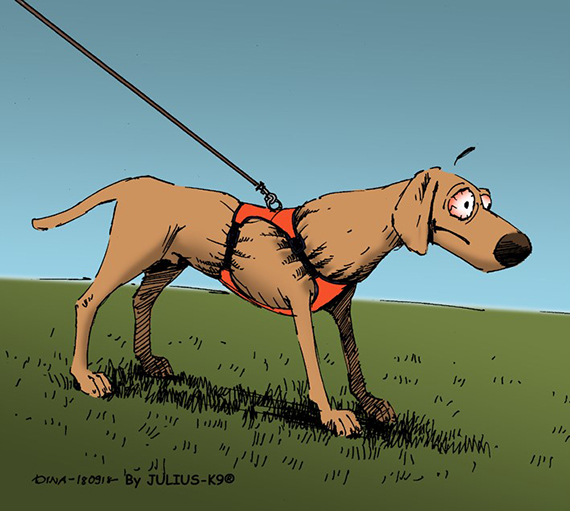For the attention of responsible dog owners!
Information misleading consumers and disguised as expert advice is circulating the Internet claiming that while some types of dog harness are unhealthy, other types of harness are not. Those veterinarians, who take a position on this issue, strongly reject the claims made by those who think themselves to be knowledgeable in the field of dog physiotherapy, about the adverse effects associated with long-term wearing of dog harnesses.

Without any actual research or real knowledge of dog harnesses and their effects, those who spread this pseudo-news, only take the dog’s shoulder movements into consideration when coming making claims that straps that run over the shoulder, close to the neckline are “healthy”, while those that run around the chest are not. The leading representatives of these opinions, of course, recommend specific dog harness brands, and take care to support their professional knowledge with amateur videos and unreliable, scientific looking references.
Those who spread this misleading news, have gone so far as to declare: Y-harnesses, or pull-harnesses cannot have any unhealthy burden on the dog’s neck and shoulder line. When discussing the issue of dog harnesses, they take great effort to avoid, regardless of type, the primary issue of size and adjusting. They understate the fact that the primary reason behind the market introduction of dog harnesses which burden the chest muscles was the avoidance of strain on the neck and the reduction of the micro-traumas of the cervical blood vessels and nerves. They are wrong in focusing on the dog’s shoulders being strained in any other but their “preferred” type of harness. All other types can just as well be damaging. To this end, they present harnesses on manipulated images, portraying the apparently wrong choice of size of harness, on overweight and skeletal dogs, while making references to German university studies that did not examine the effects of dog harnesses, but the effects of a dog’s movement.
It is important to emphasize that the Julius-K9® brand carries out scientific and verifiable research in order to determine which type of harness burdens which area, or those which in fact ease the burden on the dog during movement (https://julius-k9.com/en/julius-k9-idc-powerharness-movement).
In relation to the effects of long-term wear, it is the Julius-K9® brand which is currently undergoing university research programmes providing the foundation for a new product to become available to all responsible dog owners: the revolutionary new joint-friendly dog harness.
Gyula Julius Sebő
IDC is a European Union Trademark